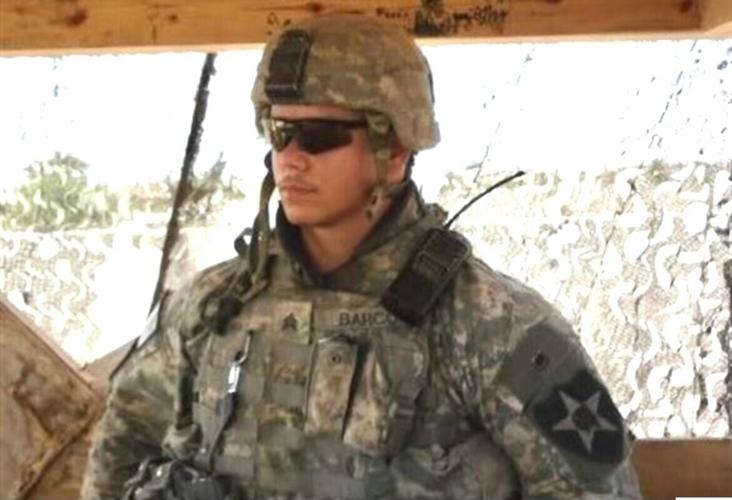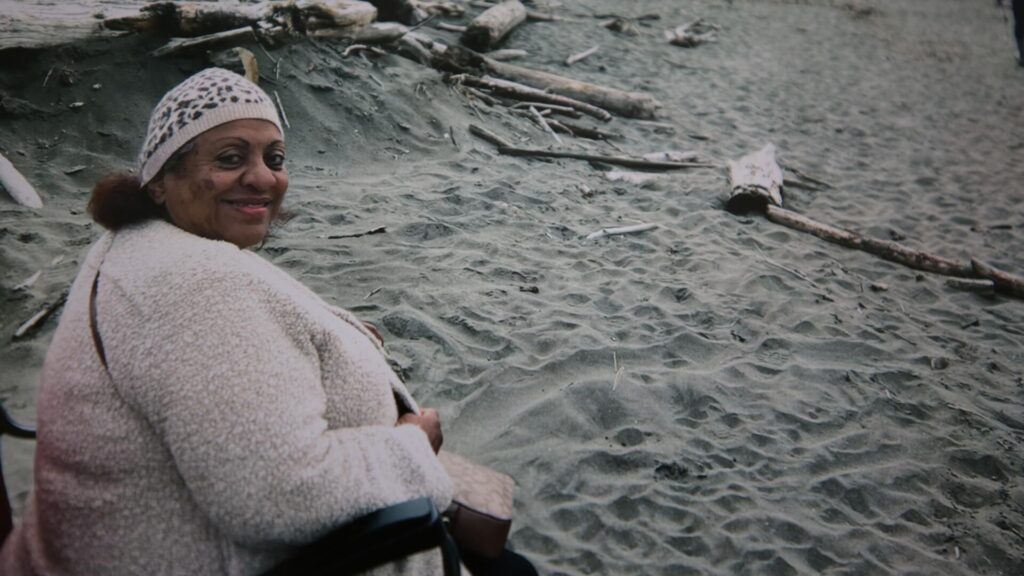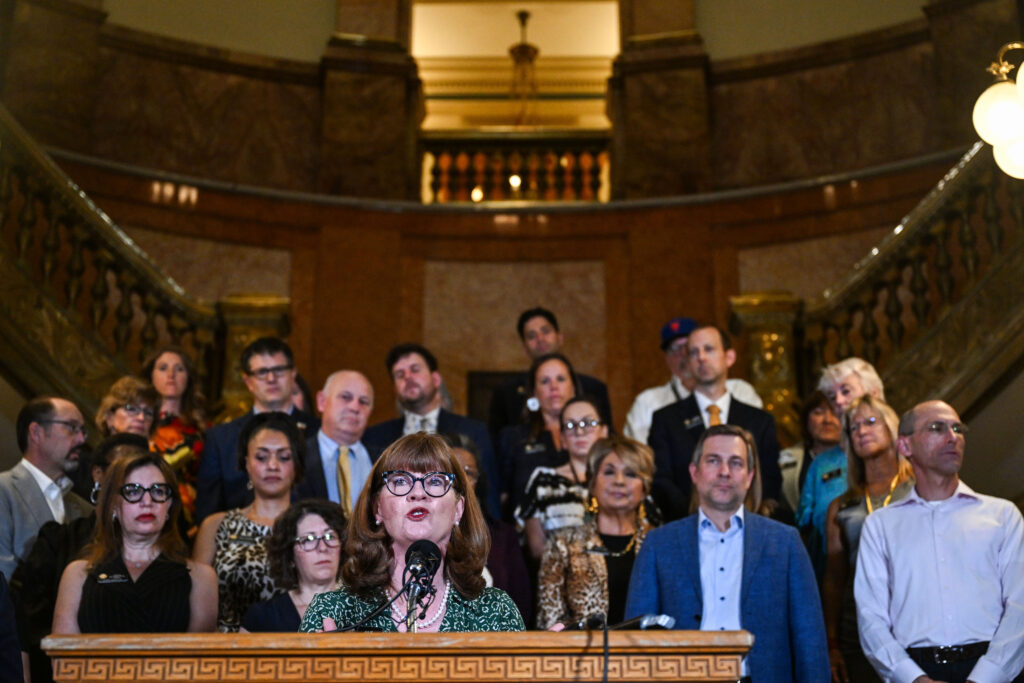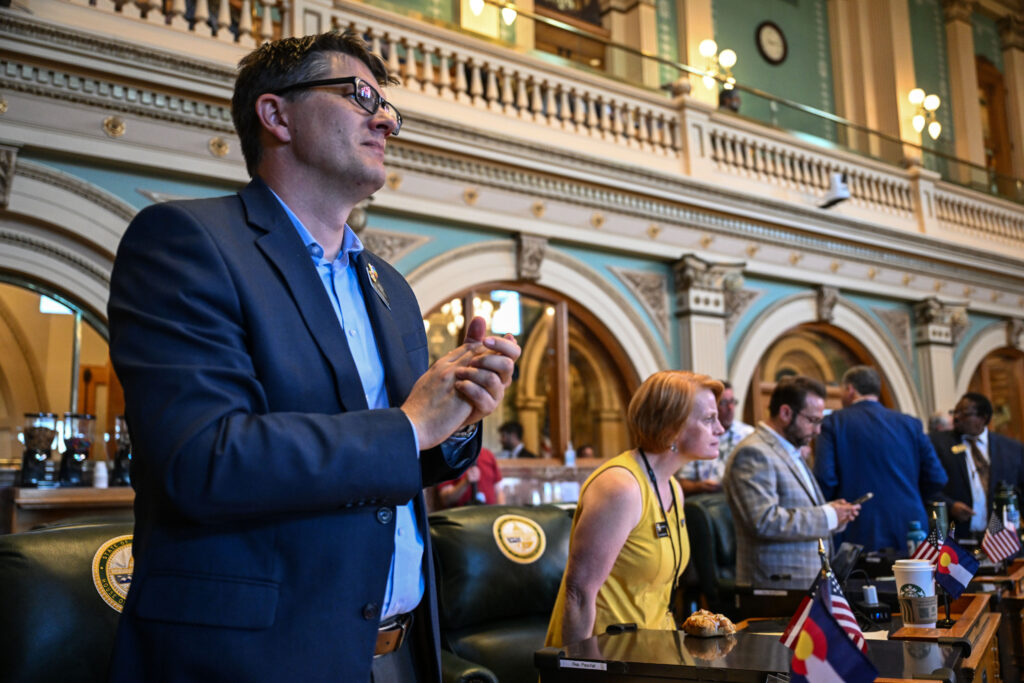Immigration judge sets surprise hearing for José Barco

Courtesy photo, Veronica Barco
After seven months locked up in U.S. Immigration and Customs Enforcement detention, a decorated Army veteran with a criminal past received an unexpected hurdle to clear late Friday afternoon.
José Barco has been awaiting an immigration judge’s decision on whether he will be removed from the United States. Two weeks ago, the 39-year-old former Iraq War soldier testified in what he thought was a final deportation hearing.
But just over an hour before the courts closed for the weekend, Barco’s attorney Friday received a surprise notice to appear for yet one more hearing “to discuss the charge of removability,” an explanatory phrase that is rarely used in immigration court hearing notices. Called a Master Calendar Hearing, the proceeding is closed to the public and scheduled for Sept. 4.
Denver immigration attorney Mark Barr explained that the Master Calendar Hearings are “preliminary hearings in which various housekeeping items are handled.” He called the extra hearing in Barco’s case “an interesting development,” given that Barco’s removability had already been determined by an immigration judge, with the prior hearing focused only on relief from removal.
On Aug. 11 in a small courtroom connected to the Denver Contract Detention Facility in Aurora, formally dubbed the ICE processing center, Barco broke his silence on his fear of being deported. As he spoke, the only sign of nerves was his jiggling left foot in a white tennis shoe as he told the immigration judge that the thought of being sent to Venezuela terrified him.
Because of the publicity surrounding his case, Venezuelan authorities have him on their radar. So if he were to end up in Venezuela “it would be the worst thing that could happen to me.” He explained that as an American soldier, he would be at the mercy of a corrupt regime known for human rights abuses with the possibility of “no one hearing from me again.”
At the start of the Aug. 11 hearing, a Division of Homeland Security attorney listed two other countries besides Venezuela as options for Barco’s deportation — Cuba, and Mexico.
None of the three, Barco assured U.S Department of Justice immigration Judge Tyler Wood, would be survivable.
Cuba was out of the question because the government would associate him with his father, whose name is also José Barco. The elder Barco was exiled to Venezuela in the 1980’s by Fidel Castro’s government for speaking out against Communism. Further, Barco is also afraid that since Cuba has reported medication shortages, he would be without the pills he takes to treat his anxiety and insomnia which stem from war injuries.
Finally, Barco is afraid that the Mexican government would not know what to do with him and send him to Venezuela.
From war hero to convicted criminal to ‘stateless’
With the U.S. seeking to deport him, and a stranger to all three countries, “he’s effectively stateless” said his attorney Kevin O’Connor.
The case against Barco was recently reopened under the Convention Against Torture (CAT). Under CAT, it was Barco’s intent during the Aug. 11 hearing to prove that deportation to all three countries would be dangerous.
Though he was born in Venezuela, Barco has lived in the United States since age 4 and signed up to defend it at 17. By the age of 18, he was on patrol in Iraq.
On Veterans Day 2004, he lifted a burning suicide bomb vehicle off of two American soldiers and passed out before he realized he was on fire himself.
For that, he received a Purple Heart — which he treasures. When he returned to the United States for medical treatment for his burns, his commander oversaw his filing for U.S. citizenship. But those papers were lost while he was in Baghdad for his second tour during 2007-2008.
He claims never to have been a drinker or violent person until the war. However, back-to-back tours took their toll and he had a rough time transitioning to life in the U.S.
He drank heavily and was taking half-a-dozen medications for headaches and insomnia when he fired into a crowd at an alcohol-fueled party in Colorado Springs and hit a pregnant woman in the leg. For that, the 24-year-old father of a newborn baby girl was convicted in 2009 of attempted murder and sentenced to 50-plus years in prison.
Former prosecutor Dan May, the then-freshly elected Fourth Judicial District Attorney, remembers the case well because it was one of the first serious challenges to land on his desk.
“There was a lot of violent crime — gang and domestic violence murders, and shaken baby cases. I sat in my office and decided that these were the cases that I would take a tough line on,” said May. “When Jose’ Barco shot into that crowd, he knew his job with the military would be on the line. He had a personal responsibility.”
However, May said that Fort Carson was not prepared for the traumatic brain injury (TBI) and post-traumatic stress disorder (PTSD) that Barco and other soldiers were bringing home with them from the Iraq War.
Early release
The former Army sergeant who expressed remorse for the 2008 shooting to his parole board explaining that he had “learned self awareness” was eventually re-sentenced down to 40 years from the original 52 by 4th Judicial District Judge Larry Schwarz. He spent his time helping other inmates earn their GED’s and was released after serving 15 years on Jan. 21, 2025 — the same week that President Donald Trump was sworn in.
It was Barco’s misfortunate timing that the Trump administration immediately set into motion what he promised on the campaign trail: a crackdown on illegal immigration, with a special emphasis on individuals convicted of crime.
For Barco, 2025 has been a nightmare.
In the nearly seven months since he was taken to the ICE processing center in Aurora operated by GEO Group, Barco’s case has been shuffled through four judicial changes. The third judge — a former Department of Justice immigration attorney named Elizabeth McGrail whose early career included fighting for immigrant rights — was either fired or resigned.
In comparison, Woods’ background is with U.S. Immigrations and Customs Enforcement (ICE) and with the Division of Homeland Security (DHS).
Since January, Barco has traveled thousands of miles in detainee limbo, a grim hopscotch that began in Aurora where he waived his right to appeal his deportation and extended to South Texas, the Texas Gulf Coast, on to Honduras, back to Texas, then to Louisiana, and finally back to Aurora.
He’s been escorted by ICE agents on private planes and official vans, likely costing the U.S. government thousands of dollars as officials navigated what to do with him.
One of the most bizarre moments of his journey happened April 3, 2025, when he was flown from Port Isabel, Texas to Honduras on a plane with 220 other Venezuelan deportees. The plane was met by Venezuelan officials who cleared the flight of except for Barco, whom they questioned extensively about his birth certificate. It looked too new, they said, for a 39-year-old. Further, they claimed he wasn’t really Venezuelan because he spoke Spanish with a Cuban accent.
They sent him back to the U.S. as the lone passenger on the plane, but it didn’t fly immediately to Texas. Instead, it made a pit stop in New Jersey where agents picked up more detainees, and then flew the full plane back to Texas. After assignments in three more detention centers, Barco was returned to Colorado April 13 where he retained pro-bono attorney O’Connor and renewed his fight to stay in the United States.
An exhibit a day
In more than 100 days of detention, 98 exhibits have been filed in Barco’s complex case.
“It comes down to a man who made a commitment, made a sacrifice, and had a promise made to him that wasn’t kept,” said Anna Stout, the former mayor of Grand Junction who is advocating for Barco and his family. “This should not be a U.S. veteran in removal proceedings, because he should have been made a U.S. citizen as this country promised him when he went to war for us and when he fought for us and bled for us. … It’s appalling, and every American should be deeply offended by this.”
Barco’s dream is to catch up on lost time with the child, now a teenager, whom he shares with his wife, Tia. She has created a detailed website dedicated to his case and combs the internet for every crumb of valuable information and sends it to O’Connor and a team that includes Barco’s army buddies.
The stark courtroom where immigration cases are heard is in the same building where detainees visit with their families under heavy supervision by guards. The lobby is a living family drama where young children who speak perfect English wait in line with one parent to visit the one who’s been arrested.
Dressed in black with a gold cross necklace, Tia Barco took the stand during the Aug. 11 hearing, the first time she had been in the same room with her husband in nearly 10 years. She testified that a Venezuelan reporter she spoke to recently warned her that he should not come there because “there are videos in the Venezuelan media which show Jose’ in a U.S. military uniform which claim America is sending spies there.”
Since the April incident when Venezuela refused him, his anxiety has skyrocketed.
Barco’s former combat medic Ryan Krebbs has been the point man for their platoon, leading a text chain as the veterans watch the developments of the youngest soldier in the U.S. Army’s 2nd Battalion, 12th Infantry Division. As Tia Barco stepped down from the stand, Krebbs took her place. The tall veteran with the red beard described José Barco’s injuries to the court, visibly growing angrier by the minute as he described how depression has overcome his friend.
“He used to light up when I came to visit, but since April, he’s become emotionally distant,” Krebbs said. “This is insane. I can’t believe that this is where we’re at.”












